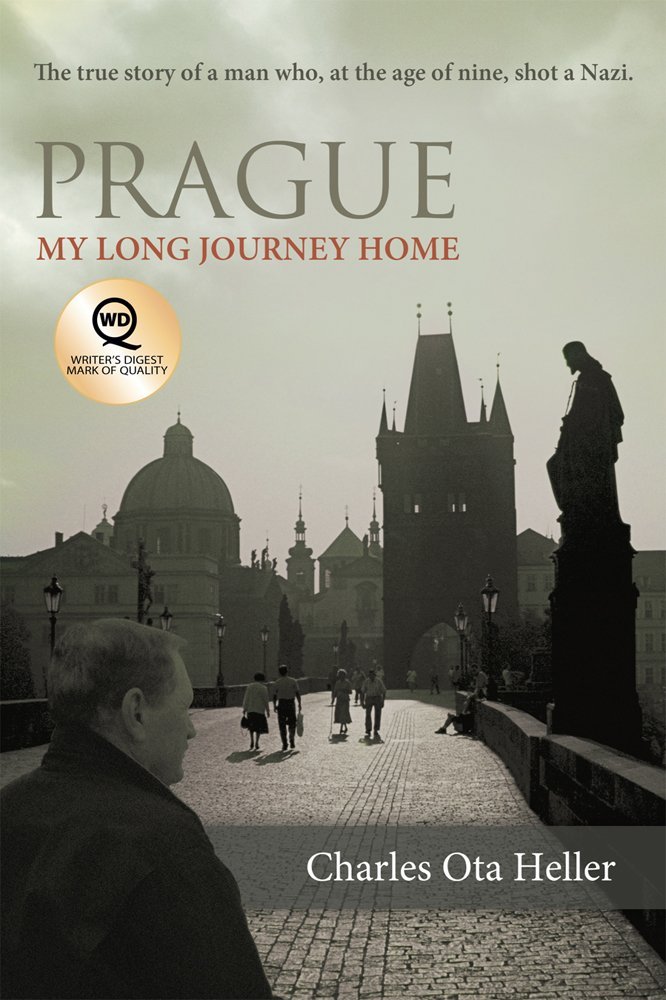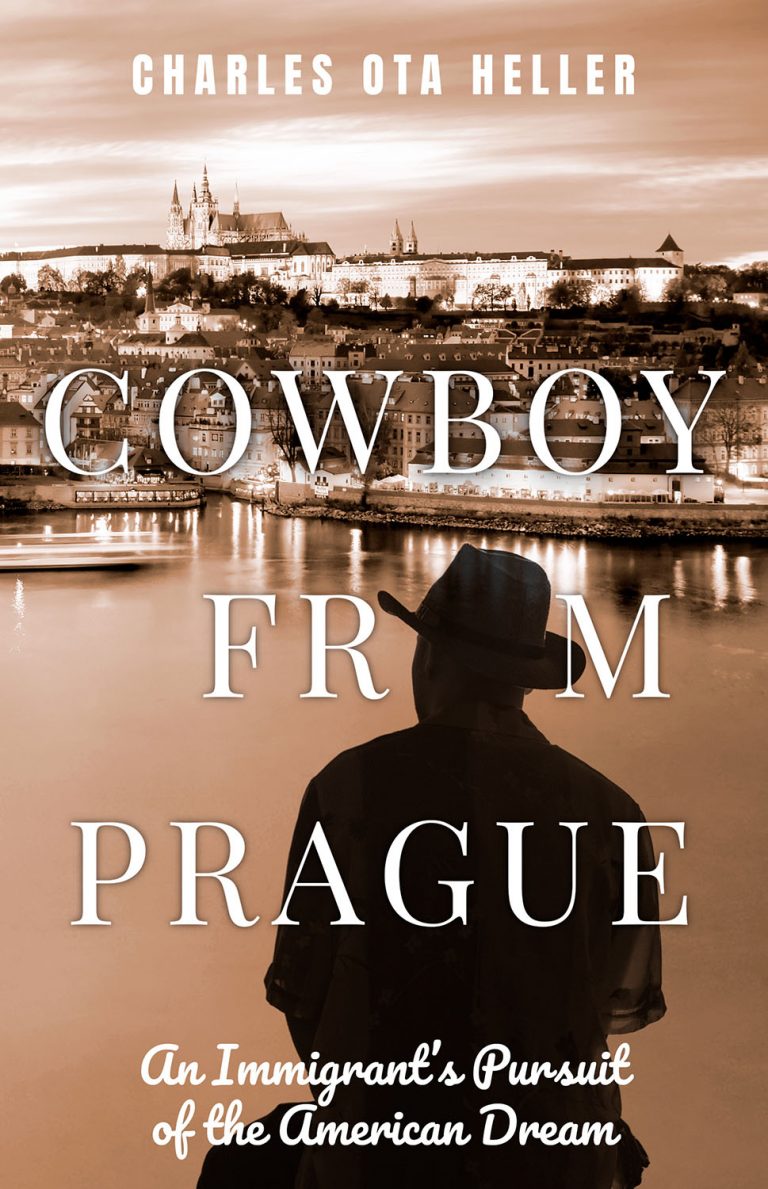Prague, Backstory
Soon after the overthrow of Czechoslovakia’s communist regime in November 1989, I reunited with my closest boyhood friend, Vladimír “Vláda” Svoboda. I had left him behind when my parents and I escaped from the country in 1948 and both of us were twelve years old. Now we were in our mid-fifties, and we had travelled along divergent paths – dictated by our respective environments.
“We should write a book together,” Vláda announced one day over a beer in a Prague pub. “Two boys grew up together. One escaped to find success and happiness in a free country. The other stayed behind and, because he refused to join the Communist Party, was unable to reach his potential and his goals in life. The contrast between living under democracy and totalitarianism would make for fascinating reading to people on both sides of the ocean.” The logistics proved impossible and my late friend, Alan Levy—a preeminent author—sealed the deal when he declared that “your families will love the book,” implying that no one else would.
Following the Velvet Revolution, Americans seemed to take a special interest in the small, far-off, country of Czechoslovakia. I responded to frequent inquiries of friends, acquaintances, and various organizations with stories and speeches about my youth – anecdotes about life during the Second World War, our liberation from Nazi oppression, the communist take-over, our escape, and life in refugee camps. I was told: “you must write your memoir” several hundred times. But, whenever I entertained the idea of putting pen to paper, I recalled Alan Levy’s words. After all, who but family and friends could possibly want to read my story?
I was in a hotel room one night when a television skit called “Jaywalking” started me on the road to changing my mind. On “The Tonight Show,” host Jay Leno was doing one of his man-on-the-street interviews during which he asked passers-by questions labeled by their low level of difficulty: “third-grade questions,” “eighth-grade questions,” and so on. On this particular night, he was standing on the campus of the University of Michigan and asking students “sixth-grade questions” pertaining to the Second World War. I sat with my mouth wide open in astonishment as I listened to one university student after another admit that he or she had no clue about the approximate years during which the war had taken place or who had been President of the U.S. during that time. When one student told Leno that Americans and Germans had fought side-by-side against the Russians in World War II, I nearly fell off my chair.
Oh, my God! I gasped.
Even worse, I was reading in newspapers and magazines about people – many of them know-nothing anti-Semites, but also a few who were articulate and educated – who denied the existence of the Holocaust. With such denial rising just as the Holocaust generation is disappearing, I knew that I had to speak out, to bear witness, to help in setting the record straight. Later, when I looked into the faces of our three grandchildren – Sam, Sarah, and Caroline – I knew that I must record the story of the Heller/Neumann family and how it was affected by the upheavals of twentieth-century’s greatest tragedy. After all, in a few more years, there will be no one left who can provide personal testimony.
Hundreds of books have been written about the Second World War, but only a small percentage of them have presented the story through the eyes of some of the millions of children who lived in Europe during the late 1930s and early 1940s and whose lives were shaped forever by the dangers, horrors and unsettling events they experienced. I was one of those children.
As the story began to take on the form of a memoir, I came to the realization that a single thread stretched through the pages. During the war, all losses, deprivation, and horrors to which we were subjected were explained to me with a simple statement: “The Germans are punishing us because your father is fighting against them.” This made the suffering a point of pride for me. Little did I know that the explanation was a pious fraud. It was true that my father was fighting against the Nazis, but the real reason for our suffering was kept a secret from me. It would not be until I would reconnect with my native country many years later that I would put together the pieces of a puzzle and realize the truth. As this became a major theme of the memoir, I added chapters about returning to Prague, bonding with my native land, coming to grips with my ethnicity, and dealing with the demons of this new realization.

